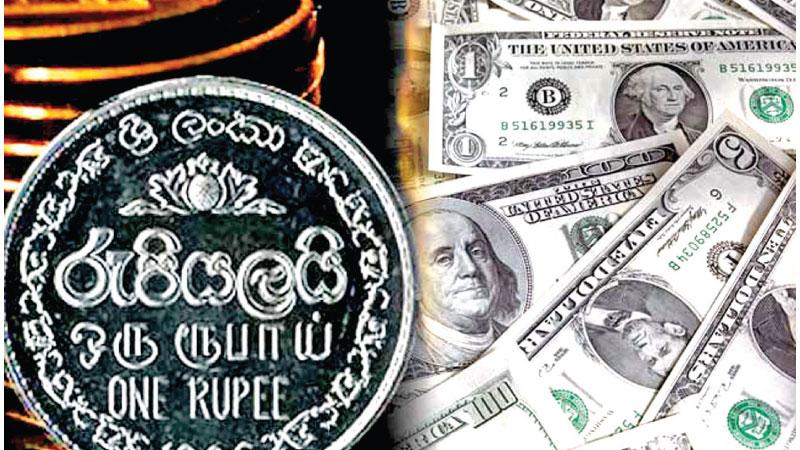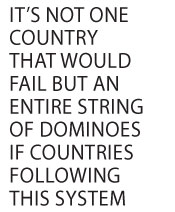
The nature of modern ‘easy money’ is that basically nations have created cash they do not have by either getting banks to create it, or by selling bonds and creating money against nothing. This wasn’t how it used to be.
In the now rather distant past nations issued money against the value of gold in their reserves. But now there is no such value against which money is printed or minted, and wads of cash are printed whenever countries want to balance their budgets, basically.
 This is the case believe it or not with big countries and small. Major economies function this way and have run up trillions in debt. Basically more debt is run up in a new budget because it involved paying off of debt and interest of old debt in past budgets, and sans all sugar-coating, it can basically be said that new money is created to sustain this ever ballooning debt.
This is the case believe it or not with big countries and small. Major economies function this way and have run up trillions in debt. Basically more debt is run up in a new budget because it involved paying off of debt and interest of old debt in past budgets, and sans all sugar-coating, it can basically be said that new money is created to sustain this ever ballooning debt.
Some countries do have something called a debt ceiling written into law, but then the debt ceiling also can be legislatively raised so that has never been a problem in these countries. But the ‘era of easy money’ means of course that inevitably future generations are put into grievous debt. The current generation is paying the debt of the generations before it.
That this is happening in most countries whether they are big or small is not a consolation, but nations should work together to find a way out of this collective debt-trap. But until that happens there is no other way but to run up debt, and of course balancing budgets remains a dream in this context.
EMPHATICALLY
Every now and then a Government gets conscientious and vows that the budget would be balanced and every effort would be made to do so, but very quickly it’s learnt that this is unsustainable on the long run and perhaps very often even on the short run.
Taxes gallop, and interest rates skyrocket to support these measures, and eventually the economy is damaged to a point where a great many people suffer because there is no growth, there are few jobs, and there are myriad other problems.
The lesson in it? In the era of easy money which is of course another word for ‘stupid money’, balancing the budget becomes a pipe dream. It doesn’t happen in most countries rich or poor, and emphatically it doesn’t happen in those among the richest.
If debt is covered in successive budgets by incurring more debt, isn’t this in the end some type of ‘Ponzi’ scheme? Certainly there are elements of that in modern economics, which is why countries need to come to a quick consensus on how this paradigm is shifted, and done soon before everything comes crumbling down and the system implodes.
Of course in countries such as Sri Lanka, there is the component of external debt that needs to be repaid in currencies in which the money was borrowed. This is different from rich countries whose borrowings are paid in their own currencies often, and there is no significant ‘foreign exchange problem.’
But rich or poor countries have the same problem, and even countries that have run up trillions in debt could face a soft default or could default with catastrophic consequences.
But what of nations such as ours? We cannot — in the opinion of this writer there is no option — we simply cannot, be obsessed about balancing budgets. It’s not possible unless we want to make the system implode from within, which is not good for anyone, least of all our creditor nations.
But attempts to balance the budget ‘as much as possible’ is a different story, and that’s the mode we are in now and up to a point in certain circumstances it would have to be seen as laudable at least in the very short term.
BAILOUT
Are countries coming to a consensus on how to address the issues of debt that are facing rich and poor nations while some extremely rich countries having a debt to GDP ratio which makes ours look rather comfortable by comparison?
It’s not one country that would fail but an entire string of dominoes if countries following this system are allowed to fail. Private bond holders and other actors are aware of that too.
Today the biggest problem we face as a country is to ensure that the economy doesn’t atrophy because we have chosen to balance the budget and bring about fiscal discipline. With high taxes this is a recipe for economic malaise, and then of course the interest rates are entirely another matter.
If we are ‘disciplined’ on all metrics, well we can hope to come close at least to balancing the budget, but it would be at great cost to the economy. But do we have a choice?
At the moment we do not have much of a choice because we are dependent on external actors anyway, for a bailout, unless of course there are fortuitous circumstances.
Though certainly we cannot get back to profligate ways we do have to find a middle path between strictly balancing the budget and letting the economy deteriorate due to the repercussions of high and unsustainable taxes and so on.
But most countries including rich ones have this problem, and it is guessed that very soon the world would have to find a way out of this easy money conundrum. Some of the key actors may not be inclined to move towards that goal, but events may soon overtake them.
Even in certain major economies talks are under way even as this article is written, over issues such as ‘default’ perhaps (that’s only a guess) and the raising of debt-ceilings.
GENEROUS
Meanwhile, the consequence of all this is that most currencies are losing value and the dollar keeps getting stronger because even if all currencies are beset with the problems stemming as a direct results of the issues aforementioned, the dollar is always stronger in relative terms. That’s sort of axiomatic, as it is the world’s reserve currency.
Though these issues are vastly more complicated, certain rudiments are clear and they have to be addressed sooner rather than later. Else, events may come to overtake the world, and such events may not look pretty and could pale into insignificance some of the ‘crashes’ that we have globally witnessed in the past.
In Sri Lanka perhaps eventually we would follow the middle path or the path of moderation where fanatical balance budget ideas or total abandonment of fiscal discipline at another extreme, becomes the norm. When systems fail the consequences have to be borne by the people. Even though Greece received a generous bailout after its financial crisis, this came at a cost. A huge proportion of Greek youth joined unemployed ranks and professionals left the country in droves.
Of course Greece eventually recovered thanks to some very good policy initiatives, but the price that had to be paid was rather steep.
Other countries do not have to go through such crises though certainly Sri Lanka is facing tough Greece-like times now. The era of easy money has to come to an end, and it would have to be in every country, rich or poor, that’s wedded to these unrealistic policies.
